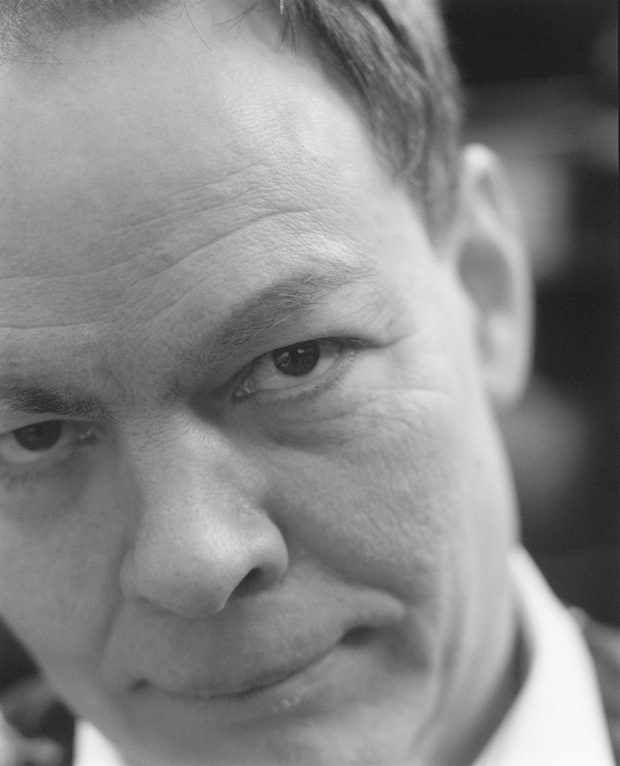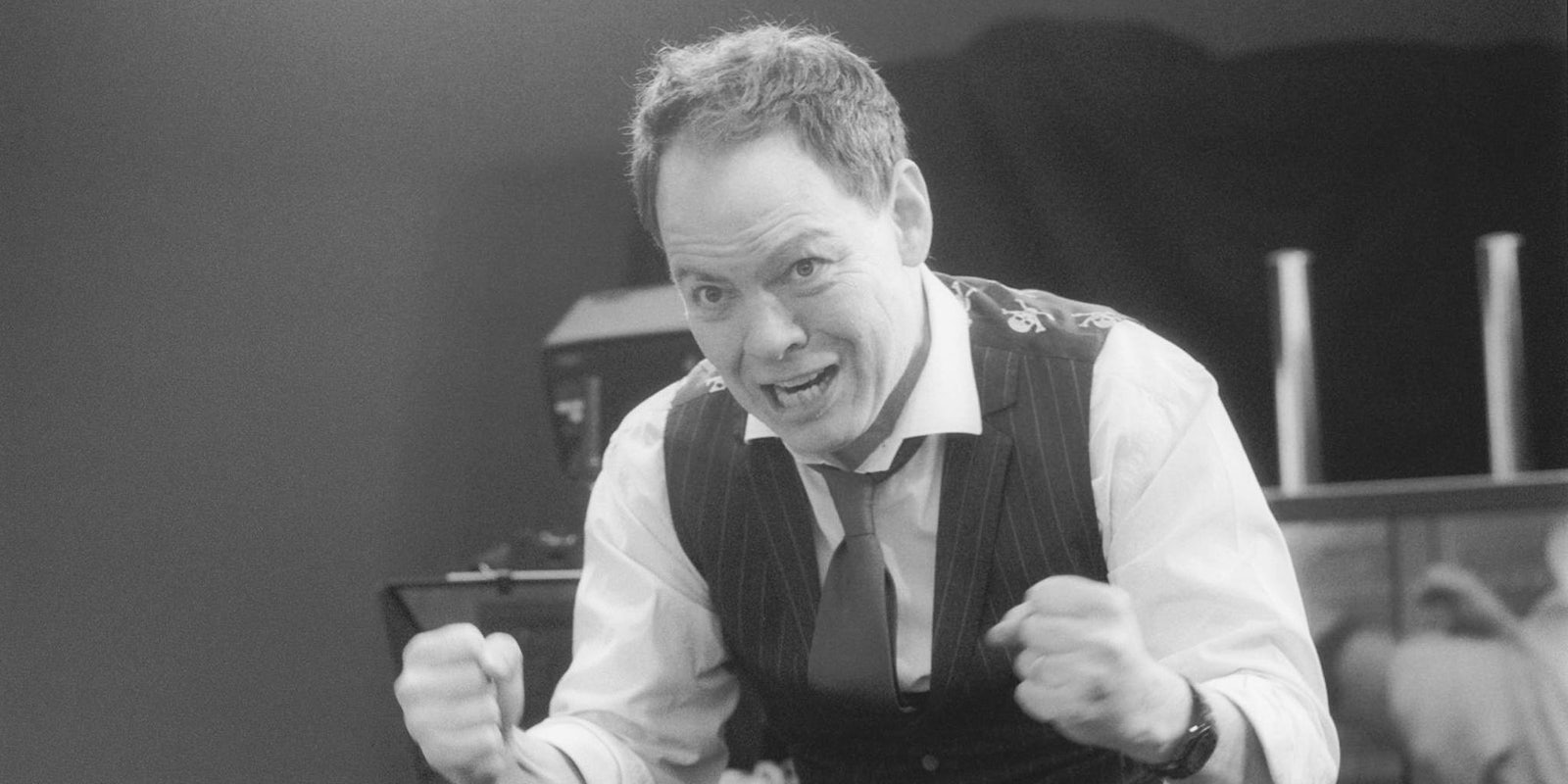In person, Max Keiser is everything you want him to be: sharp, articulate, and narcissistic. He slips into hysteria like other people slip into a bathrobe. Just mention JP Morgan CEO Jamie Dimon, and he’s gone.
“Fuck you, Jamie! Fuck you!” he screamed to an empty studio audience on set at Keiser Report, at the mere utterance of his name.
Since the banking meltdown of 2008 and subsequent bailouts, the financial shock-jock has been punching way above his weight. Launched on Russian state-funded channel RT in 2009 and filmed at a studio that overlooks city hall in London, the thrice-weekly Keiser Report nets more viewers globally than Bill O’Reilly on Fox News and Jeremy Paxman on the BBC. Keiser is beloved among followers because he’s the only person on any mainstream outlet who savages bankers and their government supplicants with as much ferocity as the tabloids and other cable news hosts. In fact, he goes at them harder.
Originally from New York, Keiser started out in standup comedy before taking a job as a stockbroker, which gave him the insider knowledge for his “act.” And although he toes the line between news and personal entertainment, the anchor for what he claims is the most popular financial show in the world does seem genuinely incensed a lot of the time. To wit, not long after I asked if he had considered following his fellow RT host Liz Wahl in resigning live on air to protest the Russian government’s actions in Ukraine, Kaiser took to Twitter and began abusing the anchors from Western TV channels for not resigning over the war in Iraq.
I had to ask Keiser—one of Bitcoin’s biggest hype men—what was going on in the world of alternative money. And does the former broker really have faith in MaxCoin, the new cryptocurrency bearing his name?
Have you been affected by the Bitcoin hacks?
Fortunately I haven’t. I was very wary about Mt. Gox because it’s been known for a couple of years now the technology there is pretty bad. So I didn’t have any in Mt. Gox, more in cold storage.
When did you buy?
I started buying between $3 and $4. Three and a half years ago is when I first got into it, because my background goes back to virtual currencies. I have some patents on virtual currencies going back to the mid-1990s. So this is really building on that idea. It’s a cryptocurrency, but it uses a lot of the virtual currency ideas.
Do you think there’s an ethical problem with talking up Bitcoin when you have such a vested interest?
It’s fully disclosed, so it’s no different from Warren Buffett going on TV and saying he has a huge interest in such and such.
On Planet Money recently, Ben Horowitz and Felix Salmon had a bet over whether Bitcoin would be a widely used currency in five years’ time. What do you think?
I follow Rick Falkvinge, who founded the Swedish Pirate party and was one of the very early adopters of Bitcoin. He made a very compelling case that Bitcoin should capture between 1 and 10 percent of the global Forex [foreign exchange] market, so that would imply a price of between $100,000 to $1 million a bitcoin. I think that will be the case.
You really believe it will hit a million dollars per bitcoin?
Absolutely. Because I do believe it will capture between one and 10 percent of global Forex. The global Forex market is in big trouble right now. It’s plagued with manipulation scandals; it’s completely inefficient. It’s ready to be “Disintermediated.” Bitcoin as an asset class is brilliant, as a means of payment, fantastic. So it will definitely challenge the current Forex business. All the companies currently in that business, like Western Union, there’s one here in London called World First; when I was on Newsnight with one of the people from that company, it was quite obvious they weren’t prepared for the competitive threat of Bitcoin.
So when do you think it will reach that level?
Well in 2014 there’s a lot more virtual currency money coming into it. So the market capitalisation of Bitcoin, which is $6-8 billion right now, will probably get into $50-100 billion range in 2014, and from there it should take off substantially.
Is it a good idea for employees to take their wages in Bitcoin?
I think anybody who is interested in keeping their money safe from the criminal banking system would want gold, silver, and Bitcoin. On an individual basis, it differs from person to person. But this is what I’ve been saying for several years now. Originally I recommended people with gold portfolios to hedge their position with maybe 5 percent position of Bitcoin. Then, over the last year and a half, that 5 percent hedge has eclipsed—it has driven those portfolios to 300 to 400 percent gains.
Gold is outperforming Bitcoin now, though.
Last year it out-performed gold. This year gold is doing better than Bitcoin. There is an interesting relationship between gold and Bitcoin. I think owning gold, silver, and Bitcoin, you have a great portfolio.
The real test is whether Bitcoin can be a reliable currency for people who have bills to pay. Even if they don’t like the banking system, at least if their wages go into a bank, they are going to be able to pay their bills with that currency. They don’t really have to worry too much about it being worthless in six months’ time, or someone hacking into their bank account and making off with their unsecured savings.
Well the U.K. is a slightly different story to, say, Cyprus, Venezuela or Argentina, where funds are being confiscated and hyper-inflation is destroying the value of the money. So in those places, Bitcoin is a lifesaver. The U.K. is one of the last places that would be affected because it’s the global centre of these banking problems. That’s why we do our show in London. We consider ourselves to be financial war reporters, and London is the front line of the worst banking scandals in the world right now. That’s why we’re here, to cover HSBC, Barclays, Lloyd’s, RBS. They’re the worst elements in this criminal banking disaster.
But isn’t Bitcoin also susceptible to the criminal impulses of cartels?
No, because you can’t print Bitcoin the same way you can print pounds. So every time one of these major banks screws up, the Bank of England just prints more money. When HSBC pays multimillion dollar fines for laundering drug money, they just print more money. There’s no accountability to all this money being printed, which isn’t the case with Bitcoin. That’s why Mt. Gox going belly up is a good example of Bitcoin being more true to a capitalist spirit of business, because nobody bailed out Mt. Gox. If it was JP Morgan or HSBC, the government would have bailed them out and you would have been paying as a result.

Photo by Alex Sebley
Tell me about MaxCoin.
Two developers from Bristol contacted me because I said on the Keiser Report that if there was a MaxCoin, it would do very well. And if it didn’t do well, I would host the show naked. So they contacted me and said, “We’ve got a MaxCoin, we want to launch.” I said, “OK, do it.”
How does it feel to have your head on a proverbial bank note?
Well this is not the first time. I created the Hollywood Dollar with the Hollywood Stock Exchange, which is the first convertible virtual currency in the world, backed by several patents. We have the Keiser Ethical Silver Coin, which has my name on it, which is for the Global Insurrection Against Banker Occupation, which is a followup to a coin that was done in Canada a year before, which is called the Silver Keiser, which does have my actual face on the coin. This latest one just has my name on the coin—it doesn’t have my face on the coin. So MaxCoin is, I think, the fourth coin that’s been branded Max Keiser in the last 20 years.
What’s your involvement with MaxCoin?
I don’t have a lot of involvement at all. I support them. Nigel Smart is the lead cryptographer in Bristol. He’s somebody I discovered through MaxCoin, and we’re going to do some projects together going forward. But it’s pretty much Luke Mitchell, who is the lead developer. It’s his project, basically. The coin has a lot of great technology.
Some of the people on your website disagree.
That’s what makes a market, you know, buyers and sellers.
Do you think there’s a danger you’re becoming one of the financial hucksters you rally against?
No, because I’ve said all along that my mission, if you will, is to put the tools of free markets into the hands of people, so they can empower themselves. And at the same time disenfranchise the bad folks, the bad banks. KarmaBanque, which was using the tools of capitalism against capitalism, got huge press a few years ago. Hollywood Stock Exchange was the same thing, transferring the power of Hollywood elites to the population. So that’s been a recurring theme, transferring power and wealth from the concentration to the many.
Is MaxCoin going to be a serious contender, or another novelty?
It’s impossible to say, as market forces are in operation here.
Isn’t there an argument that capitalism relies on relatively stable currencies, because if you have a thousand kinds of money in the marketplace, it’s hard to establish a common value to the goods we’re trading?
It’s all about competition. MaxCoin is competing for the crypto buck, if you will. So is Bitcoin, so is Dogecoin. Alt-coins are proving to be formidable because there’s a solid community behind it, there’s a use for it, and it’s got a great market capitalisation. I think that’s going to be a winner.
The Auroracoin, which came out of the banking crisis of Iceland, that has huge support, that looks very good. The Mazacoin from the Lakota Nation is brilliant, because they have their own sovereignty within the U.S., so they’ve created their own sovereign coin. And here’s a group of people that have been downtrodden, beat up, horrified, tortured, annihilated, and genocided by the U.S. government for 300 years, so they clearly have a need for a coin. Then market forces take over. Scotland wants to do a coin; they should do a coin because they’re trying to achieve independence.
What’s one MaxCoin trading at right now?
0.00042 bitcoin, around $0.27
In that case, I may get some.
It’s cheap! I think the risk is near a 100 percent. The risk-reward is attractive, but it’s still high. The risk-reward for Bitcoin is very compelling at $670 per Bitcoin. I think it’s a very attractive coin with huge distribution, application, etc. If you asked me which currencies to put money in, I would say Bitcoin number one, and go from there.
I want to buy some MaxCoin, but it looks difficult.
Go to MCXNow, which is an exchange, with Bitcoin, you can convert it into MaxCoin.
I don’t have a bitcoin.
Well you should get some. Get some Bitcoin!
Photo by Alex Sebley
